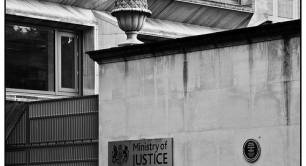Results of the world's first social impact bond cause a ruckus
The world's first social impact bond, the Peterborough Social Impact Bond (SIB) launched its results yesterday. There have been cheers and there have been boos. And we won't find out if it really worked until 2016.
The SIB is using investors' money to fund an effort by social enterprises, charities and government agencies to deliver services that rehabilitate male offenders with short sentences and stop them re-offending. For a long time short sentenced male prisoners have been released onto the streets "with £46 in their pockets and little else, in the hope they would sort themselves out" according to the UK Justice Secretary Chris Grayling. Unsurprisingly, that hasn't been working.
So the world is watching as the SIB experiment draws to a close. And yesterday we heard that for the first group of prisoners benefiting from the rehabilitation services, reoffending was down 8.4% compared to prisoners going through the justice system as usual. In celebration of the combined effort to reduce re-offending, victory tweets starting doing laps of the social media circuit.
Journalist, Alex Goldmark tweeted, "Big #impinv news here. First Social Impact Bond results are in and they're positive." We reported with a nuanced positive verdict from James Perry CEO of Panaphur, one of the 17 foundations that invested in the SIB. And social investor Anthony Bugg-Levine, CEO of Nonprofit Finance Fund tweeted "1st social impact bond on track 2 meet targets. Proud & honored to have invested (w/o guarantee)".
But 'fails' made the headline in Third Sector, which reported that investors would not see their investment repaid for the first group. This is because reoffending rates were required to drop by 10 per cent for the first group in order to trigger payments to investors under terms set out by the Ministry of Justice.
"Is it correct that investors will only make any money if the Peterborough SIB model improves?" independent advisor Dan Gregory tweeted to the founder of Social Finance Toby Eccles, who replied, "they make a bit of money if it stays the same."
With no money for investors yet, 'on course for payment' was the big news from Social Finance. "The Ministry of Justice and the Big Lottery Fund will make payments to investors in 2016 if there is a reduction in reoffending of more than 7.5%" in the second group and final group, it said in a press statement.
So is that success or failure, or do we reserve judgement for such an ambitious project until we see the results for the final group of prisoners? Let the debate begin.



![[file:field_file_image_alt_text]](https://www.pioneerspost.com/sites/default/files/styles/node-teaser/public/images/article/stacks%20of%20coins%20copy2.jpg?itok=GdxJaw65)